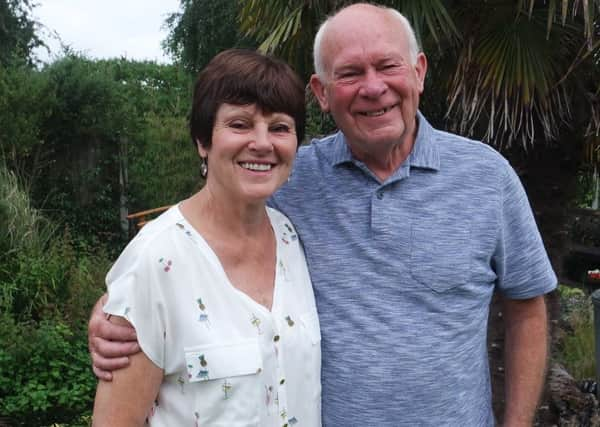Isle stroke survivor backs campaign


The 74-year old grandad from Wroot was formerly a prison officer and governor, managing some of Britain’s most notorious prisons for around 35 years, before he retired.
John was writing a book about his life and career, and was about three quarters of the way through his story, when a stroke threw his world in to chaos.
Advertisement
Hide AdAdvertisement
Hide AdHis family were told by medics to expect the worst after John collapsed suddenly at home in December 2016..
He had no idea what had happened when he awoke in Scunthorpe Hospital. His stroke had taken away his ability to read and write, and most of his speech.
John said: “I could talk a little bit but I realised I had a problem. Every day in hospital I kept trying to write, sometimes at two o’clock in the morning. I now know these things don’t improve overnight. It’s very frustrating, but I know to listen to people who are trying to help.”
John has been supported by the Stroke Association during his recovery. He was helped by an eight week Communication Support workshop organised by the charity.
Advertisement
Hide AdAdvertisement
Hide AdHe said: “The team has helped me so much. When they talk to you, it makes you realise how far you’ve come.”
He practices writing every day, keeping notebooks to jot down words when he thinks of them. His daughters are planning to help him to finish his book, using a dictaphone to record John’s words.
John added: “There’s lots I can’t do and I now accept that. It annoys me that I can’t write yet and I can no longer drive. Sometimes I’m dying to say something but it won’t come. When that happens, I have a minute to try to find a different way of saying it.
“Before my stroke, I never had trouble speaking to people. Now it’s different. My stroke affected my confidence but going to the communication group has helped. I like to talk to as many people as I possibly can to help me improve. My grandchildren also help me with activities at home on the iPad.”
Advertisement
Hide AdAdvertisement
Hide AdThe Stroke Association’s Lost for Words campaign aims to raise awareness of the challenges stroke survivors can face.
Sally Darley, communication support coordinator at the Stroke Association, said: “After a stroke, around one in three people like John have difficulty communicating, which can be both terrifying and isolating. But with the right help and support, many stroke survivors are able to find new ways to communicate, and can rebuild their lives.”
More than 350,000 people in the UK have aphasia, a communication disability which can be caused by stroke. The Stroke Association is urging people to show support for stroke survivors who are lost for words by making a donation. Visit www.stroke.org.uk/lostforwords.